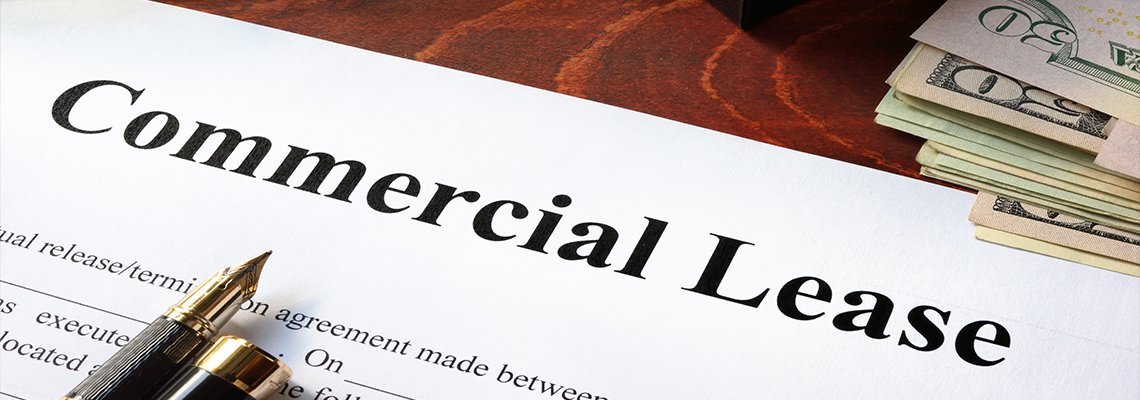
What You Need to Know About Commercial Leases
Commercial leases in Minnesota are regulated by federal and state law, as well as by local ordinances, zoning and safety codes, contract law, and relevant court decisions. Specifically, the relationship of landlord and tenant is spelled out in Minnesota Statutes, Chapter 504B.
A commercial lease is much more complex than a residential lease; and often requires serious attention to detail by both landlord and tenant, along with negotiations to clarify all aspects of the transaction.
It is best for both parties to seek guidance from an experienced commercial real estate attorney. If you’re in the Minneapolis, Minnesota area, contact the Engel Professional Association. We have 20-plus years’ experience helping with real estate transactions of all types, including commercial leases.
Engel Professional Association serves clients in Minneapolis, St. Paul, and across Minnesota, including Mankato, Maple Grove, St. Cloud, and Woodbury, as well as the areas of Milwaukee, Madison, and Hudson, Wisconsin.
Types of Commercial Leases in Minnesota
In general, there are four types of commercial leases available in the state. All can be either periodic – month to month – or for a specified rental period:
Percentage Leases: In addition to a monthly rental amount, the tenant pays a percentage of monthly sales.
Gross Leases: The tenant pays one sum to the landlord, who then pays all expenses on the structure, including taxes and maintenance.
Rental Square Foot Leases: Tenant pays a rate for each square foot rented, including any common area.
Net Leases: In this type of lease, the tenant pays not only a base rate but also covers some or all of the taxes, insurance, and maintenance. A net lease is the opposite of a gross lease in that the tenant assumes all or most of the costs associated with the property as if being the owner.
Net leases are further broken down by the amount of responsibility the lessee, or tenant, assumes. There are three layers of responsibility in a net lease beyond a basic rental fee. These layers cover taxes, maintenance, and insurance fees.
In a single net lease, the lessee agrees to pay one of these layers; in a double net lease, the lessee assumes responsibility for two of the layers. In a triple net – or net-net-net lease as it is commonly called – the tenant assumes responsibility for all three layers.
There is also a hybrid lease that combines features of a net lease and a gross lease, which is called a modified gross lease. Under this arrangement, the tenant might assume some additional responsibilities, such as paying for utilities, along with a base rental fee.
Considerations in a Lease:
Clauses to Watch For
A commercial lease can contain many conditions and clauses asserting the rights and obligations of both parties. That’s why it’s essential to be represented by a knowledgeable commercial real estate attorney, whether you’re the tenant or landlord.
For instance, the landlord may include a use clause, which limits the business activities for which the space may be utilized. A would-be lessee must ensure that this clause doesn’t restrict or exclude their business operations. A lessee may request an exclusivity clause, which prevents the landlord from renting any nearby space to a tenant operating the same type of business.
Other clauses might cover improvements and alterations, which describe who’s responsible for what when it comes to modifying or upgrading the property. A landlord might also insert a signage clause, limiting the type, size, and look of signs outside or on the building.
All these clauses can be negotiated. Each side should have a knowledgeable attorney representing their interests in coming to an agreement.
Rights and Responsibilities of
Tenants and Landlords
Under Minnesota law, residential tenants have much broader rights than commercial tenants. That’s why it’s important for prospective lessees to negotiate the best terms they can get.
The landlord, for instance, may want a long-term deal, but you have your eyes set on relocating as soon as you can to a more desirable location. You’ll need to negotiate a term length you can deal with. Also, check the use, alterations, and signage clauses to make sure they suit your purposes.
Landlords usually start from a position of strength since, after all, they control the property and can set their own terms and choose their own tenants. Still, they cannot evict a tenant on a whim. They must have a cause – rent not paid, property trashed – and then they must get a court order to evict.
Common Disputes
Disputes often arise from inadequately thought out or ill-worded lease agreements. A landlord may suddenly demand the tenant pay for repairs when the tenant was never made aware of, for example, trash removal, taxes, etc.
The lease must be crystal clear on all obligations and responsibilities, or disputes can arise over who pays for what. Problems often arise when a lease is drawn up from a template, or downloadable form, and not every contingency is accounted for.
If negotiations fail to resolve a dispute, the only remedy is taking matters to court, often resulting in a breach of contract lawsuit by one or both parties or an eviction action by the landlord.
Skilled Legal Guidance
If you’re looking for commercial space to lease or you’re a landlord about to lease a commercial space, rely on the Engel Professional Association for help in forging an ironclad lease that protects both parties and prevents disputes in the future. If a commercial lease dispute has already erupted, contact us immediately. We proudly serve clients in St. Paul, Minneapolis, Mankato, Maple Grove, St. Cloud, and Woodbury in Minnesota, and the areas of Milwaukee, Madison, and Hudson, Wisconsin.
